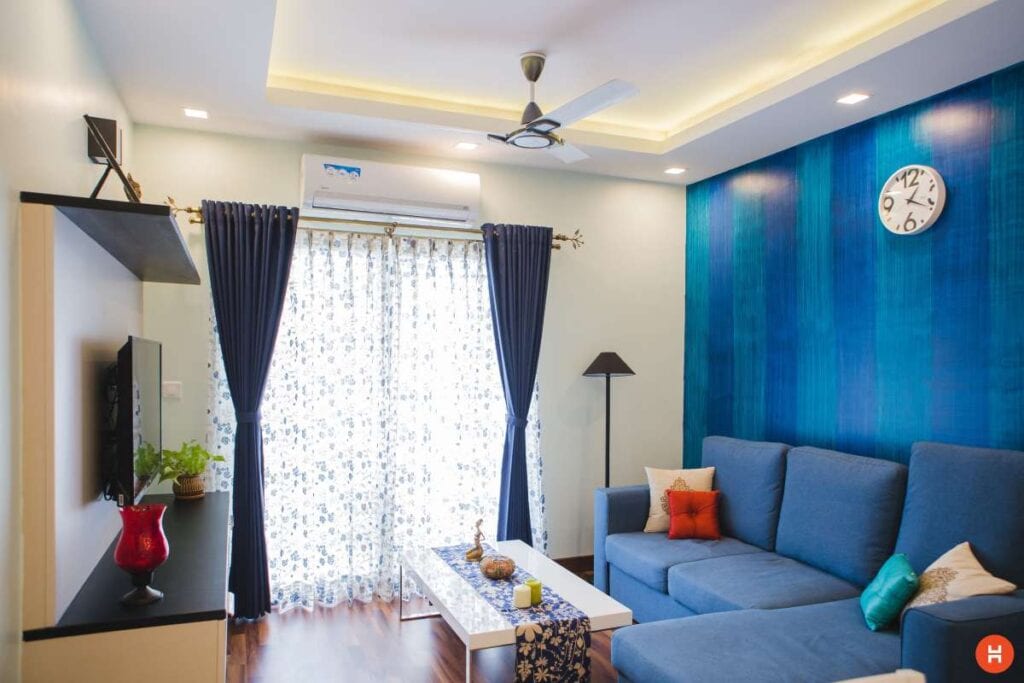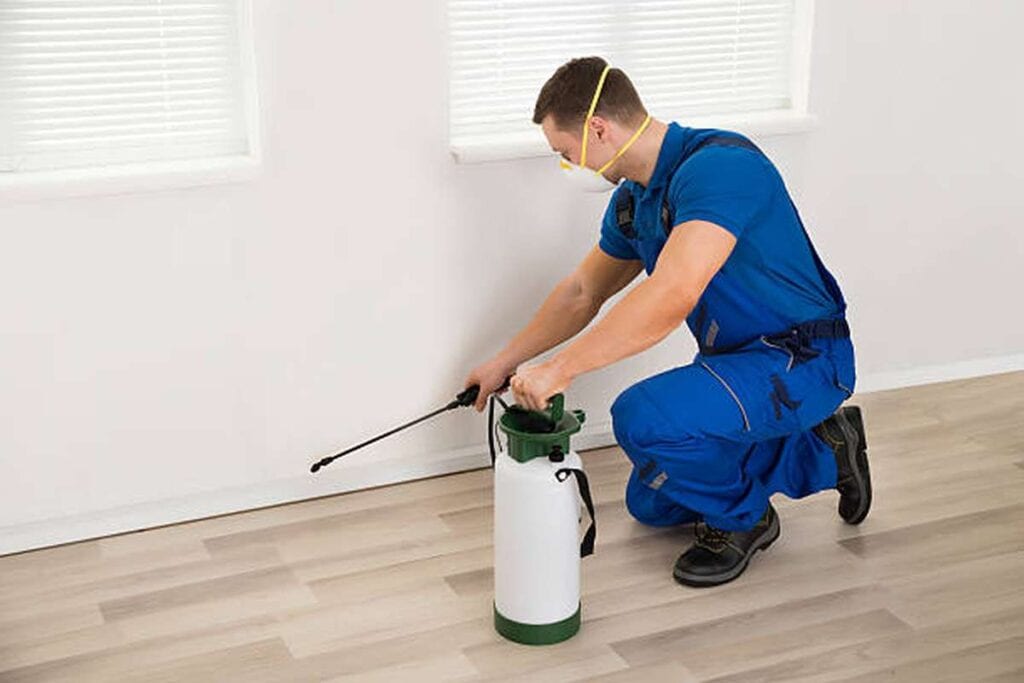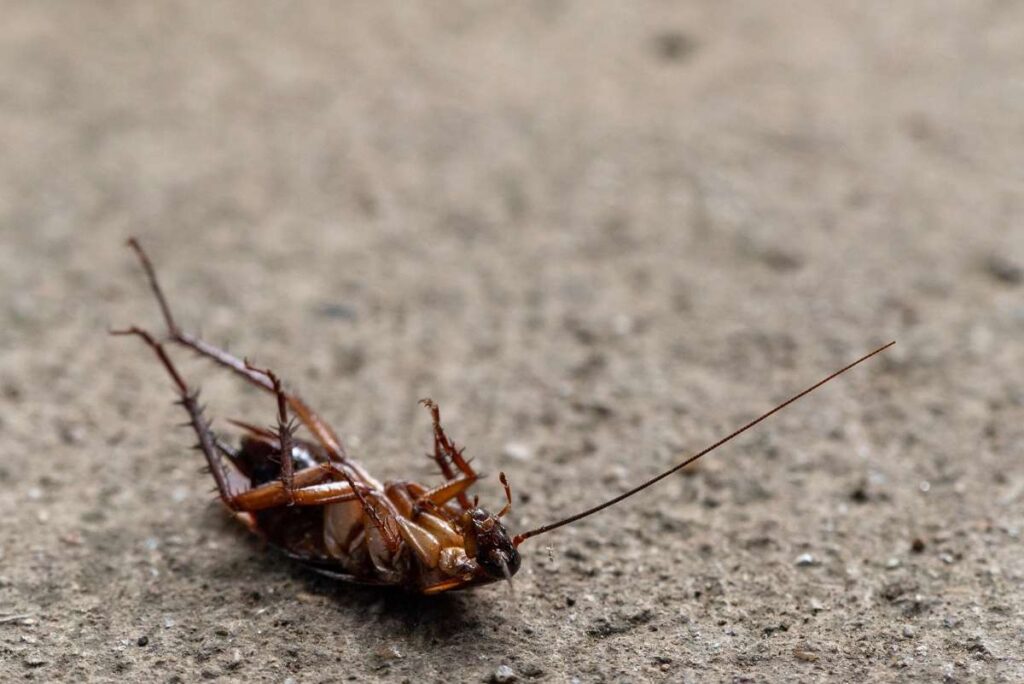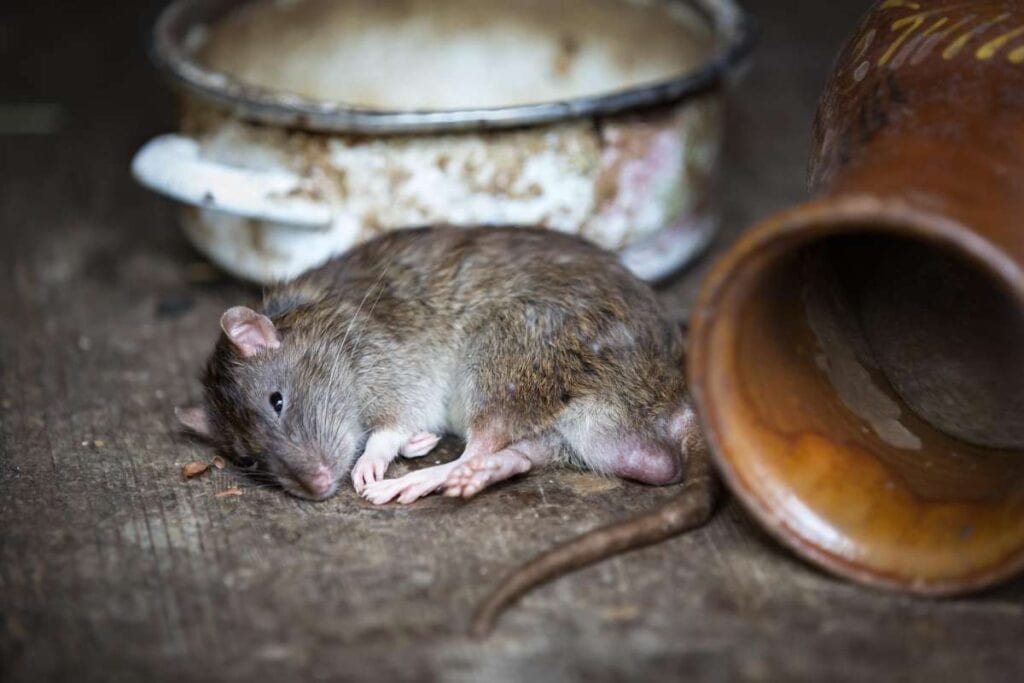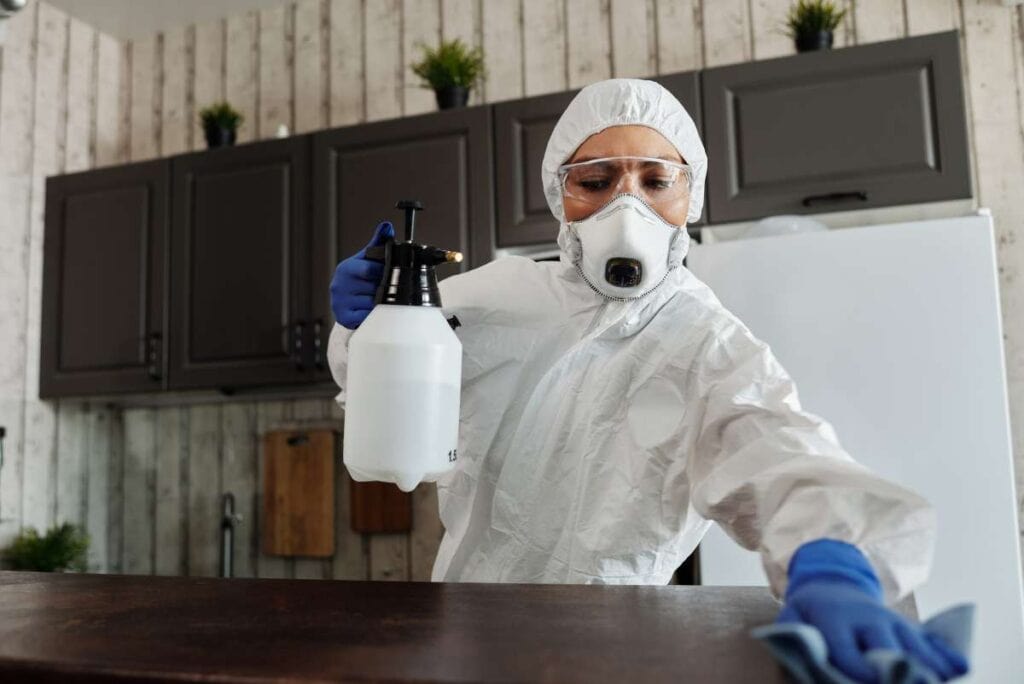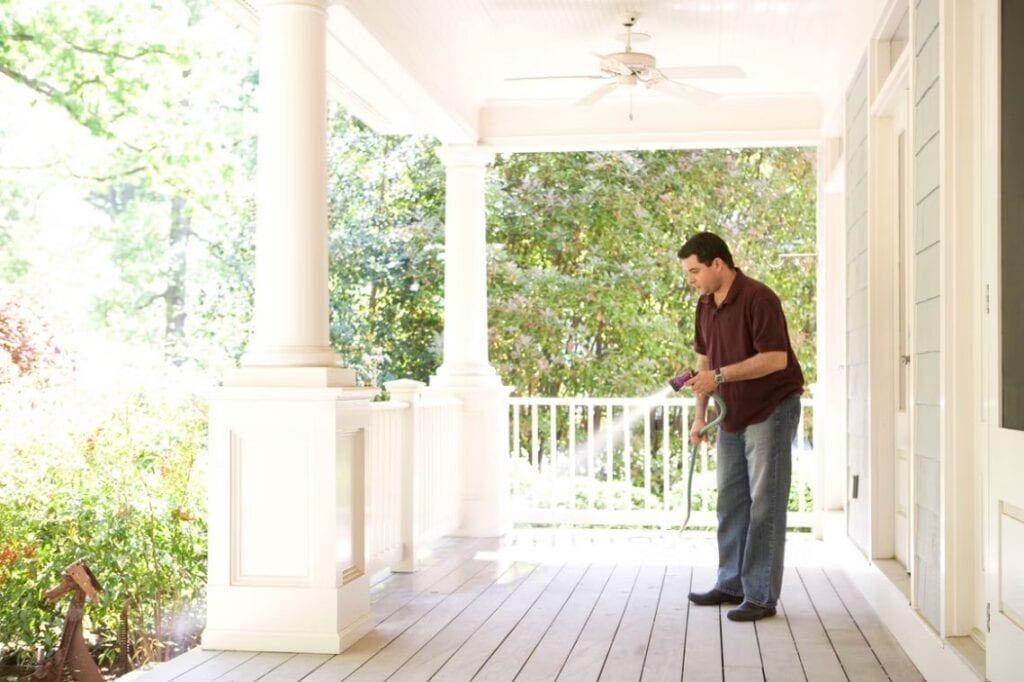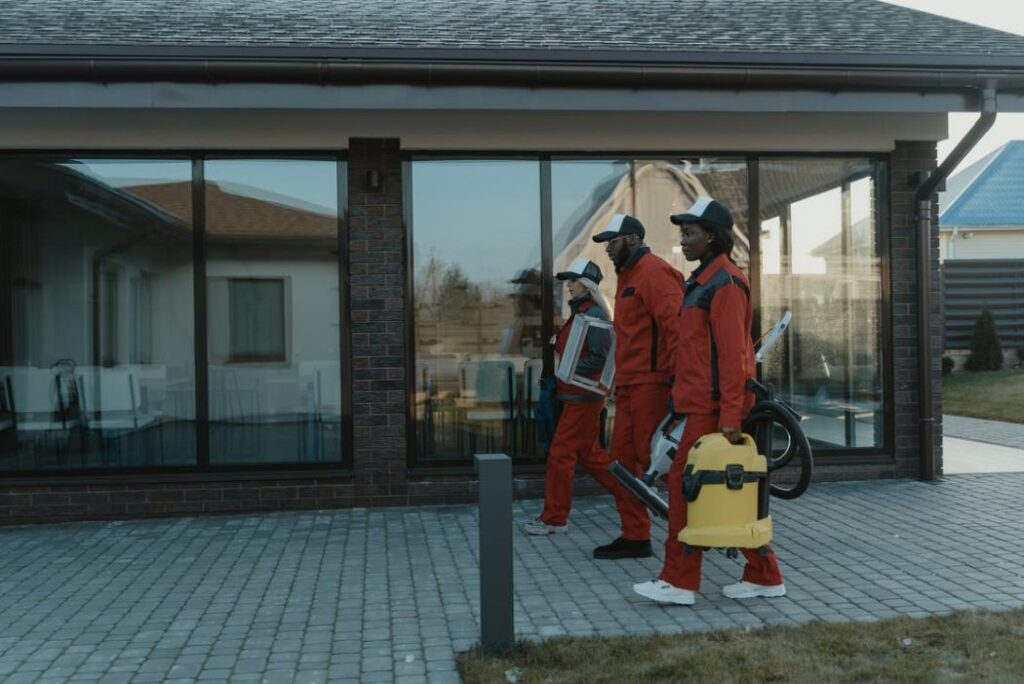Even if you're diligent about keeping your flat clean, you still can have problems with insects. Bug prevention in an apartment or condominium is a different animal than in a single-family home. Bugs can easily spread from common areas of an apartment or condo building to your private residence. It doesn't take much for insects and other pests to make their way into your home if your neighbours engage in behaviours that attract them.
Locational factors, such as proximity to forests or garbage cans, can also affect the insect population in your apartment or condo. Another reason insects could find their way inside your apartment or condo is that there are usually multiple entryways.
Although ants, wasps, spiders, flies, and cockroaches are among the most often encountered household pests, they are by no means the only ones. So, tell me, exactly, how do you prevent pests from entering your home? Please read on for some useful advice we've uncovered for keeping those pesky insects out of your apartment or condo.
Take a Look at Each Possible Entryway
If you want to make sure your condo or apartment is completely bug-free, you need to examine more than simply the entrances that others can use. Make sure there are no holes or cracks in the windows, walls, or pipes that pests could utilise as escape routes. If your flat or condo is older, this is extremely crucial. Splits and cracks in older window frames can provide microscopic openings for insects. Warped or damaged weatherstripping is a common problem with older doors, providing a gap that insects can use to sneak inside. Even if you have screens on your doors and windows, the screens are likely to be worn through and allow insects inside.
Transparent caulk or silicone can be used to repair cracks in window and door frames, walls, and pipes. Changing out worn weatherstripping is an easy way to reduce draughts and insect infestations in your home. Most hardware stores will carry replacement screens that can greatly minimise the insect population inside your home.
Maintain a Spotless Cooking Area
Especially sugar, free human food is a bug's dream come true. The presence of food sources is a common contributor to pest problems. Eliminating pests requires constant upkeep of the kitchen, including the stove, sink, and refrigerator. Due to the fact that mould in the kitchen is an attraction for bugs and other pests, removing it might help lower their population as well.
The sink and the counter surfaces are not places to leave dirty dishes. Leave the spoon you have used to stir your coffee in the morning on the counter, and an insect and his horde of pals will soon be on their way. Keeping fruit and vegetables inside the refrigerator, especially during the warmer months, is recommended to prevent infestation by fruit flies.
Get in the Habit of Taking Out the Trash Frequently
Insects will feed on garbage if given the choice between that and fresh food. Insects will attempt to get into your trash if it overflows the can. The flooring of the cabinet where you keep your garbage can will become a breeding ground for insects if you don't clean it regularly. Trash cans can get filthy and sticky even if you empty them frequently. Trash cans should be emptied every couple of weeks to prevent the accumulation of odours and the attraction of vermin.
Clear the Clutter

Cluttered spaces and rooms provide ideal conditions for pests to thrive, even if the rest of the house is spotless. As such, you should clean and tidy up your living quarters, including the bathroom, bedroom, kitchen, guest room, and laundry room. Bugs can hide in the cracks and crevices of a cluttered home. Bugs are attracted to clutter, so try to minimise it whenever you can, especially in the kitchen, bathrooms, and bedrooms of your home. Keeping your house neat and tidy will help discourage pests.
Bed bugs are a major concern for landlords and tenants since they can sneak into a property on suitcases, in secondhand furniture, or even in people's clothing. The actual beetle is tiny and brown, roughly as small as an apple seed, and it loves to hang out on your mattress. If you notice any black or brown speckled marks along your mattress, you may have bed bugs.
If you suspect you have bed bugs, inspect the area around your bed, including the box springs, headboard, footboard, and any other pieces of furniture within 5 to 8 inches of the floor. Do a thorough search of the area, checking surrounding books and electrical outlets. All bed linens should be removed and washed in hot water before use. Then, use some soap and warm water to thoroughly clean your mattress, and finish off by vacuuming the floor and the walls around it.
If there are bed bugs in the apartment, the landlord will have to hire a professional exterminator to get rid of them. If other apartments in the building are also infested and nothing is done about it, you should expect to continue to have problems with bed bugs within your own apartment. Unless you can prove that you introduced the pests, your landlord should pay for the chemical treatment as well as the exterminator.
Keep in mind that bed bugs typically create itchy bites in a row along the skin. Make an appointment with a doctor if this is the situation so they can treat you.
Maintain a Regular Cleaning Schedule With the Vacuum, Broom, and Mop
It's impossible to completely eliminate the possibility of pests invading your home no matter how meticulously you clean, as there will always be some unseen food and dirt particles on the floor. You can keep bugs out of your home by regularly sweeping and mopping hard floors and vacuuming carpets to remove the minute dirt that attracts them. Take extra care to inspect the space behind large furniture, such as a couch or bed, as well as the corners and baseboards. Insects will typically make their nests in these tight, dark spaces. They won't have time to set up shop if you're constantly sweeping and vacuuming the place clean.
Keep Everything Dry
Wet places are a bug's best friend. Bugs will congregate in your bathroom if you leave any standing water there, so avoid doing that in the tub, sink, shower, or anywhere else. Insects may go for days with no food, but they always need water. The pipes beneath the sinks should be checked for leaks, and any standing water should be wiped off. Bugs can thrive and proliferate in damp, dark cabinets due to water leaks.
Consider Insecticides
In the end, you may have to resort to buying insecticides. If you spray insecticide in the same places you would peppermint oil, you should be able to keep out the bugs. Insecticides act as a deterrent, killing any insects that attempt to breach the barrier they've set up. If you have children or pets, you should only use insecticides that are safe for them. To make sure the product won't stain or discolour the woodwork or other surface in your home, you should conduct a tiny trial on a section of baseboards or cabinet that will be out of sight.
You can also think about using bug catchers, which will let the desired insects in while excluding the unwanted ones.
Make sure you find out the property management company's approach to pest control if your building is managed by insects. Companies that take their responsibilities seriously will have a regular pest prevention programme in place; the absence of such a schedule should serve as a red flag. But there are times when even a professional exterminator isn't necessary to ensure your flat or condo remains pest-free. By following these guidelines, you can keep these pests out of your home.
Who Should Take Care of Pests in a Rental Home?
Landlords are typically responsible for paying for and arranging for pest control services, though this may vary by jurisdiction. Ants, cockroaches, bedbugs, and rats are just some of the pests that can quickly make a once-livable space uninhabitable, and yet landlords are required by law to keep their properties in liveable condition. However, there is one case in which a landlord may not be responsible for pest treatment in an apartment building: if the pest problem was brought on by the tenant's own actions.
For a renter, what does this mean? Tenants should avoid contributing to an existing pest problem by following a few easy precautions. Some examples of these procedures are:
- Taking care of the dishes after usage and putting them away
- Taking care of the dishes and cleaning the table after dinner
- Keeping a clean floor requires constant sweeping and mopping.
- Reducing potential bug hiding places by clearing out clutter
- Sweating pipes, dripping faucets, and broken seals on windows and doors should all be reported.
Is Monthly Pest Control Really Necessary for Apartments?
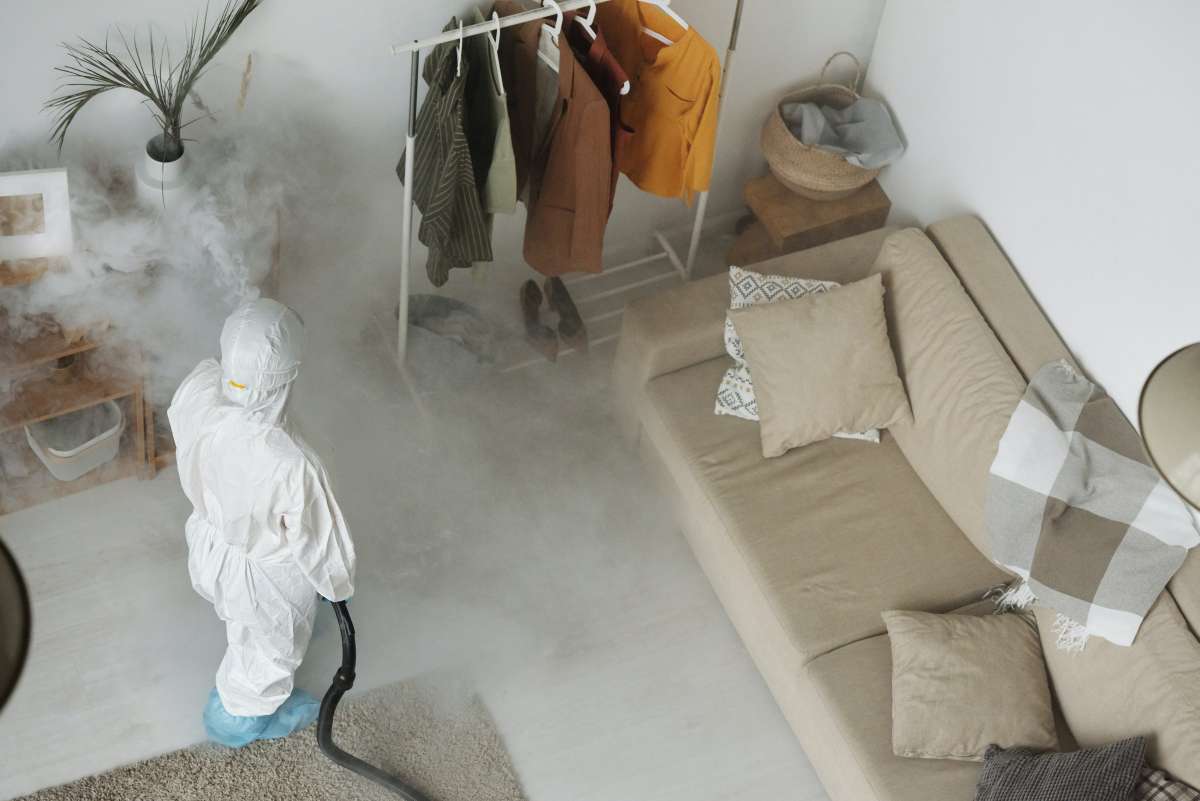
When should pest control be performed in an apartment? The correct response is, "It depends." In the case of severe infestation, certain apartments may require monthly treatment. In most cases, though, this is a temporary measure that won't continue for more than six months.
Treatments should be performed at least every two months, and ideally every four weeks. In most cases, that level of assistance is sufficient.
The Importance of Apartment Building Pest Control Inspection
When it comes to controlling pests in an apartment, how effective is pest control? For sure, and the significance cannot be overstated. As if the health hazards, tenant complaints, and property depreciation weren't enough, pests in multifamily buildings also present a number of other issues that must be addressed. As a result of the conducive conditions for their proliferation, pests love apartment buildings, and once they establish a foothold, they are difficult, if not impossible, to exterminate.
Take into account the reality that apartment buildings:
- Pests tend to congregate in these high-traffic locations because they offer easy access.
- Sufficient quantities of food, water, and shelter
- Having a setup with many units can allow pests to flee to a safer area if they feel threatened in one.
- As soon as a pest problem is identified, the landlord/property manager must work with the occupants to find a solution as soon as possible.
When It Comes to Pest Management, What Does the Landlord Have to Do?
Questions about who is responsible for what occur whenever numerous people must work together to solve a problem. Apartment pest control laws vary widely between states. There are, however, some things that never change when it comes to apartment pest treatment and landlords.
In general, it is the landlord's responsibility to keep the property in liveable condition. This admittedly wide provision mandates rapid maintenance and compliance with all applicable regulations. Additionally, if the infestation of insects or rodents did not originate with the tenant or are not the result of the tenant's conduct, it may be the responsibility of the landlord to offer pest control services.
Although the specific language of the law in your state may vary, tenants are generally expected to notify landlords of pest problems as soon as they are discovered and to prevent bringing new pests into the building. Therefore, if a renter has an overflowing garbage can or a leaking pipe and doesn't report it, the renter could be held financially responsible for the cost of extermination. In spite of the availability of apartment-specific bug sprays, the most effective method of preventing pest infestations in your living quarters is simply to be conscientious about keeping your space clean and uninhabitable for insects like ants and cockroaches.
A tenant's right to refuse treatment of their unit is a matter of some debate. Tenants may be hesitant to cooperate with pest control services because they may feel uncomfortable asking questions about the process or rearranging their busy schedules to accommodate it. In most cases, arguments like this will not be accepted. However, most people think that a renter only has a right to prevent a pest-control professional from entering the property if they have serious health concerns about the service. If landlords refuse to let technicians into a property, they are unable to fulfil their legal obligation to provide tenants with a safe and liveable dwelling.
Why should you let a repairman inside your flat if something bad could happen if you don't? That is situation dependent. In some cases, a lease will empower the landlord to penalize the tenant for the expense of treatment or even evict them.
Conclusion
Bugs can easily spread from common areas of an apartment or condo building to your private residence. Make sure there are no holes or cracks in windows, walls, or pipes that pests could utilise as escape routes. If your flat or condo is older, this is extremely crucial. Repairing or replacing weatherstripping is an easy way to reduce draughts and insect infestations. Transparent caulk or silicone can be used to repair cracks in window and door frames and walls.
Insecticides act as a deterrent, killing any insects that attempt to breach their barrier. There are times when even a professional exterminator isn't necessary to ensure your flat or condo is pest-free. Landlords are typically responsible for paying for and arranging for pest control services. Tenants should avoid contributing to an existing pest problem by following a few easy precautions. Treatments should be performed at least every two months, and ideally every four weeks.
Apartment pest control laws vary widely between states. In general, it is the landlord's responsibility to keep the property in liveable condition. Tenants are generally expected to notify landlords of pest problems as soon as they are discovered. If a tenant has an overflowing garbage can or a leaking pipe and doesn't report it, the renter could be held responsible for the cost of extermination. Some landlords refuse to treat tenants' properties if they have health concerns.
Content Summary
- Another reason insects could find their way inside your apartment or condo is that there are usually multiple entryways.
- So, tell me, exactly, how do you prevent pests from entering your home?
- Please read on for some useful advice we've uncovered for keeping those pesky insects out of your apartment or condo.
- Make sure there are no holes or cracks in the windows, walls, or pipes that pests could utilise as escape routes.
- Even if you have screens on your doors and windows, the screens are likely to be worn through and allow insects inside.
- Cluttered spaces and rooms provide ideal conditions for pests to thrive, even if the rest of the house is spotless.
- Keeping your house neat and tidy will help discourage pests.
- If there are bed bugs in the apartment, the landlord will have to hire a professional exterminator to get rid of them.
- Keep in mind that bed bugs typically create itchy bites in a row along the skin.
- It's impossible to completely eliminate the possibility of pests invading your home no matter how meticulously you clean, as there will always be some unseen food and dirt particles on the floor.
- You can keep bugs out of your home by regularly sweeping and mopping hard floors and vacuuming carpets to remove the minute dirt that attracts them.
- Wet places are a bug's best friend.
- Bugs can thrive and proliferate in damp, dark cabinets due to water leaks.
- Make sure you find out the property management company's approach to pest control if your building is managed by insects.
- By following these guidelines, you can keep these pests out of your home.
- However, there is one case in which a landlord may not be responsible for pest treatment in an apartment building: if the pest problem was brought on by the tenant's own actions.
- Tenants should avoid contributing to an existing pest problem by following a few easy precautions.
- When should pest control be performed in an apartment?
- When it comes to controlling pests in an apartment, how effective is pest control?
- As soon as a pest problem is identified, the landlord/property manager must work with the occupants to find a solution as soon as possible.
- There are, however, some things that never change when it comes to apartment pest treatment and landlords.
- In general, it is the landlord's responsibility to keep the property in liveable condition.
- Additionally, if the infestation of insects or rodents did not originate with the tenant or are not the result of the tenant's conduct, it may be the responsibility of the landlord to offer pest control services.
- A tenant's right to refuse treatment of their unit is a matter of some debate.
- However, most people think that a renter only has a right to prevent a pest-control professional from entering the property if they have serious health concerns about the service.
FAQS About Pest Control
Usually, the insect population drops dramatically and noticeably within the first two days. The length of time required to achieve the desired effects is based on the type of pest we are fighting and the products we decide to use.
Don't be surprised to see increased insect activity, especially in the form of cockroaches and ants, after a pest control treatment has been applied. As expected, the treatment will result in a temporary uptick in pest activity as the pests seek refuge elsewhere; however, this is temporary and should die down after a few weeks.
To get rid of chemicals, use a dishwashing soap and water combination and a mop. If pesticides are sprayed along walls, it's important to avoid mopping or cleaning in such areas so that bugs aren't able to escape.
- Clean up the dishes in the sinks.
- Get rid of any puddles that have formed around your house.
- Maintain a regular vacuuming schedule.
- Do a quick wipe down of the kitchen counters.
- Always use airtight containers when storing food or other perishables.
- Collect all trash and store all paper products.
A pest problem, if left unchecked, can soon escalate into an infestation. If this happens, the cost of attempting to fix the problem on your own may exceed the cost of hiring a professional exterminator at the first sign of trouble.

